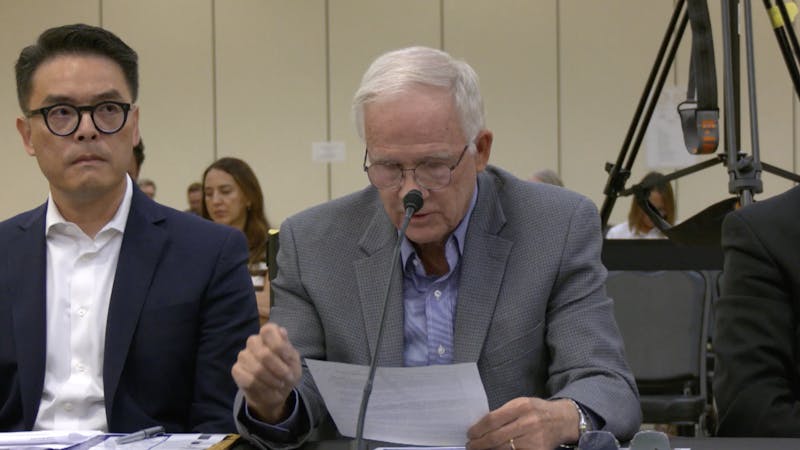Big challenges, big enthusiasm
Hidden away in Lovett Hall, Entrance A, in a little alcove left of the drinking fountain and across from the floor-to-ceiling wooden doors of the office of the Dean of Undergraduates, new Director of First Year Programs, Shelah Crear, prepares to make history. With a record number of applicants for the class of 2013 ("10,818", Jan. 16) and the quickly-approaching opening of Duncan and McMurtry colleges, Orientation Week 2009 stands to be a larger and more complicated operation than any O-Week in recent memory.Her office is comfortable and well-lit, if a little bare, but Crear, a Dallas native and adopted Austinite and Longhorn by education, has an enthusiasm for her responsibilities that fills every corner of the room.
"Orientation holds a special place in the hearts of all students, regardless of the size of the campus," she explains. "Everyone remembers their orientation adviser regardless of whether they loved them or hated them."
The former director of Greek life at the University of Texas and orientation at the University of North Texas, who is perhaps more accustomed to working and living at larger universities, is the first person to hold the position of Director of First Year Programs at Rice. In past years, the responsibilities of the position, which include O-Week, mid-year orientation for transfer students and IMPACT Rice, have fallen under the purview of various campus staff including Assistant to the Dean of Students Kate Noonan and former Assistant Director of Student Activities Holly Williams, who left Rice in September 2007. Under Crear, all activities and programs directly involving the first-year experience will be consolidated under one office.
Crear, a Ph.D. student in education at Texas A&M University, joined the Rice staff this past summer and has spent the 2008-'09 school year learning the ins and outs of the Rice first-year experience. She lauds Noonan and Student Director of Orientation Megan Hermance, a Baker College senior, for smoothing her transition from observer to facilitator, and speaks excitedly about her plan for the future: giving first-year students the opportunity to dive into Rice life as soon as possible.
"After O-Week, everyone gets immersed in their classes," she notes. "There's a gap of time where everyone's trying to plug in, but they're certainly not in the same place that they'll be at the start of their second semester. How do we fill those first 8-10 weeks?"
Crear believes that the answer lies in peer mentorship.
"After talking with each of the presidents," she explains, "I thought it was interesting how many of them had an individual in their life who pushed them along and got them involved and showed them how they could get plugged in and acclimated to Rice."
In her first year, Crear hopes to cultivate these successful relationships and develop a more holistic sort of collaboration across campus groups and keep each year's first-year students safe, comfortable and active.
Crear acknowledges the challenges of cutting her teeth with next year's colossal, record-breaking group of incoming students.
"It's exciting, and some days even overwhelming, but nobody in recent history can say they've been a part of something like this. It's a great opportunity for the campus.
More from The Rice Thresher

Rice announces Chao College as 12th residential college
Rice announced that the 12th residential college will be named Ting Tsung and Wei Fong Chao College Aug. 19. The college, set to open in fall 2026, will contain nearly 300 on-campus beds.
Dining access fund announced following on-campus unlimited meal swipes
Rice announced new food assistance programs on Tuesday to account for the controversial change in the on-campus meal swipe plan.

Rice disaster prediction model discussed at hearing on deadly Central Texas floods
The House and Senate Select Committees on Disaster Preparedness and Flooding held a hearing on July 31 in Kerrville to address the deadly July 4 flooding in Central Texas. The flooding along the banks of the Guadalupe River killed 108 people, including 37 children. In the charged hearing, Texas lawmakers and flood survivors criticized the local response to the disaster.


Please note All comments are eligible for publication by The Rice Thresher.